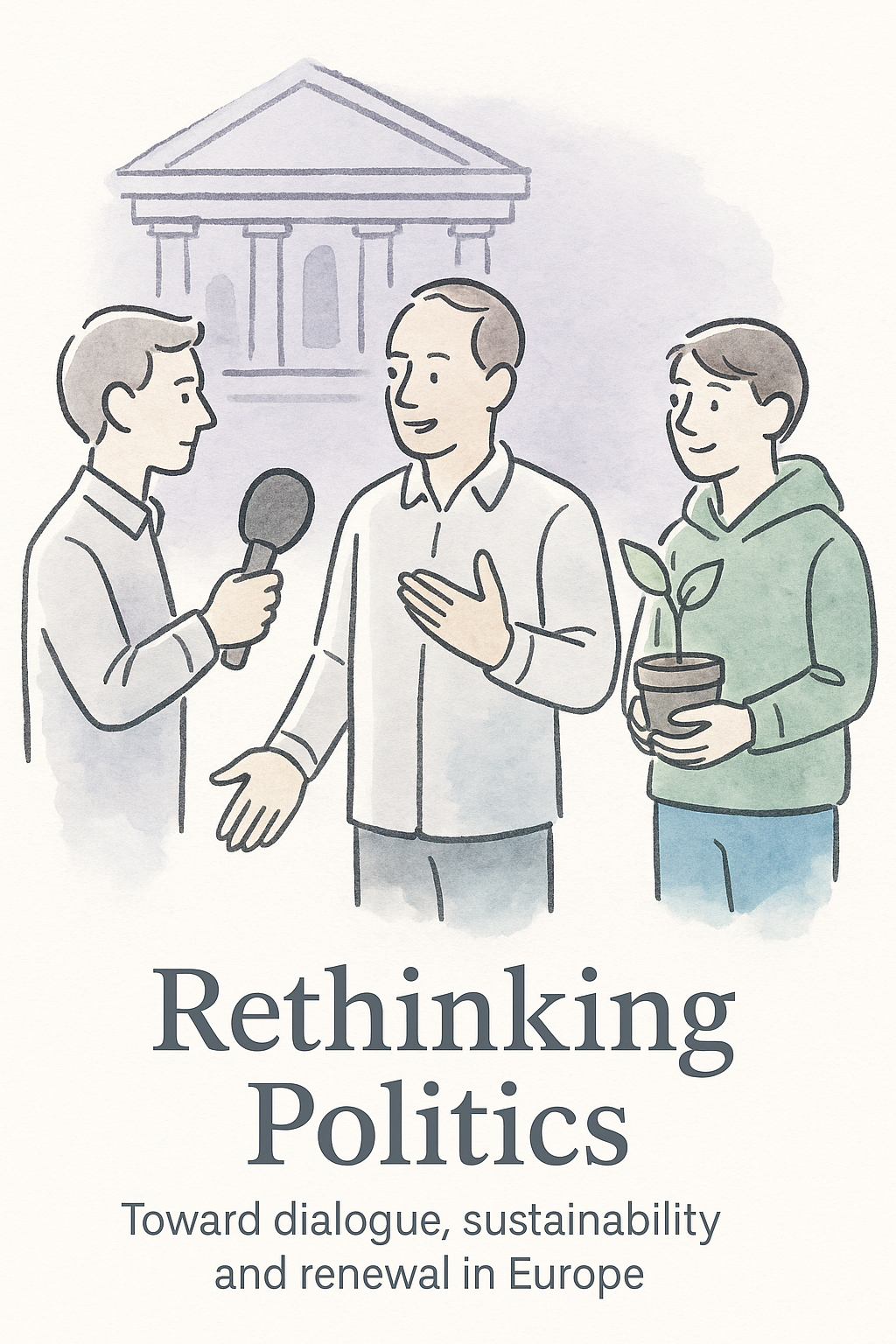
Practicing Politics Differently
A sense of discomfort is spreading—dissatisfaction with “politics“, the government, the state, and those in power. This sentiment is not mine alone.
“The current way of doing politics no longer works”,
wrote Gabor Steingart in his Pioneer Briefing on 8 November 2024, reflecting on Trump’s triumph and the self-destruction of Germany’s coalition government, the “Ampel.”
“They don’t dare to tell voters the truth”,
commented economist Veronika Grimm in a recent interview.
“His greatest weakness is also his greatest strength: he’s the antithesis of a politician“.
diagnosed former Austrian Chancellor Sebastian Kurz when describing Donald Trump. (Sometimes we must listen even to those we dislike.)
Something is clearly brewing. What exactly remains uncertain, but we suspect it can’t go on like this.
And what do our elected representatives—those meant to serve the people—do? They continue as before: indulging in ritualistic disputes, engaging in vain self-promotion (“sharpening their profiles”), and making empty promises they cannot possibly fulfill within a single legislative term. The list could go on.
And what about us? After all, we are the people. We continue as before. What else can we do? Perhaps we vote out the ruling parties, only for others to take over—often those partly responsible for the status quo or those deemed “unelectable” by the official narrative, hidden behind so-called “firewalls.”
Will anything change as a result? Perhaps, but only marginally.
Will it improve our situation? Likely not, because…
“You cannot solve problems with the same thinking that created them.”
This quote, often attributed to Albert Einstein, holds wisdom.
So what should we do?
Perhaps it’s time to pause, take a deep breath, lean back, and rethink—we, the people.
“The foundation of democracy is a sense of ownership: I am not a visitor here. I am not a victim of my society, nor merely a consumer—I am a shaper of my society, and I am responsible for myself and others.”
Marina Weisband, psychologist and politician, originally Ukrainian and of Jewish faith, may not embody the German mainstream, but she captures what must be our guiding principle.
Until now, we’ve regularly cast our votes, marked our ballots for seemingly trustworthy candidates (often without scrutinizing the vague party platforms), and hoped for the best.
As long as our circumstances—primarily defined by economic growth—improved, all was well. And when the time came, we re-elected those same smiling faces.
But things are no longer improving. The future looks increasingly bleak, with dark scenarios looming: climate change, the threat of global conflict, and the devastation of our planet, to name just the top three. We should have acted decisively long ago, yet we haven’t.
Instead, little Germany risks being crushed in the geopolitical maelstrom.
Clearly, we need different politics. But we’ll only get them if we approach politics differently.
It’s apparent that no one entangled in the professional political machinery has the strength for fundamental change. So, we’ve taken matters into our own hands.
We’ve founded a new party: Europeans for the Planet.
We’ve given ourselves three mandates to guide our actions:
- Ensure humanity’s survival in a liveable world—a perpetual task that established parties might claim to support but defer in favour of immediate concerns.
- Preserve liberal civil liberties—hard-won since the Enlightenment, these are now under threat, even as major parties profess their commitment to them.
- Create a federal state of Europe—an idea often dismissed as “too difficult to sell” to the public. But without this, little Germany has no chance of being heard among the world’s great powers. Meanwhile, the EU has become too unwieldy, slow, and fragmented to inspire younger generations.
Much more can and must be said about these mandates, but that’s not the focus here. What matters is pursuing these goals differently than before.
To wrest control of our future from professional politicians—driven by power, visibility, and survival instincts—our party programme must play a central role. Party members must actively shape policy and monitor its implementation.
Here are the seven principles guiding our political engagement:
- A Members’ Party: The party thrives through its members, not its founders or board. Voting members must be eligible to vote in Germany. Supportive members without voting rights, particularly from other European countries, are also welcome—they may later join sister parties in their homelands.
- No Professional Political Careers: Full-time political careers prioritise personal ambition over the public good. Most party work should complement members’ civilian professions.
- A Political Oracle: To navigate the flood of information, tackle political complexity, and ensure logical consistency, we aim to develop a “political oracle”—a decision-support system still in the making.
- Division of Labour: To avoid full-time politicians, roles such as communicators, strategists, and executors will be distributed among many members. The community, aided by the political oracle, will drive policy formation.
- Less Personality, More Programme: Decisions should not hinge on a few charismatic leaders. A detailed, continuously updated, hierarchical party programme will take precedence.
- A European Identity: We aim to address Europe’s future, so we’d have preferred founding a Europe-wide party. Current rules allow only “clubs” of national parties at the EU level, not direct membership. Thus, we’ll foster sister parties across Europe and establish a federation once the first sister party is founded.
- Boring Politics: Yes, you read that right—politics should become boring again. In the absence of extraordinary crises, the daily political routine should be predictable and undramatic. A well-defined programme, oracle support, and the absence of profile-building should encourage constructive governance—reassuringly boring.
Every citizen of a European country who refuses to be a mere visitor, victim, or consumer but seeks to shape society is welcome to join us: https://eufp.de/ or sign up directly: https://eufp.de/join/.
The time for a grassroots party has come.
Horst Walther



